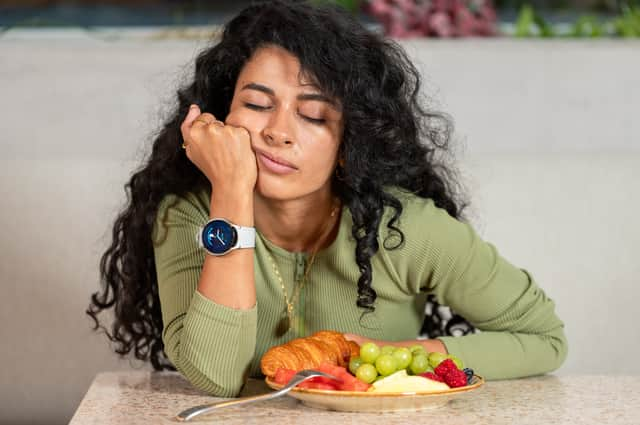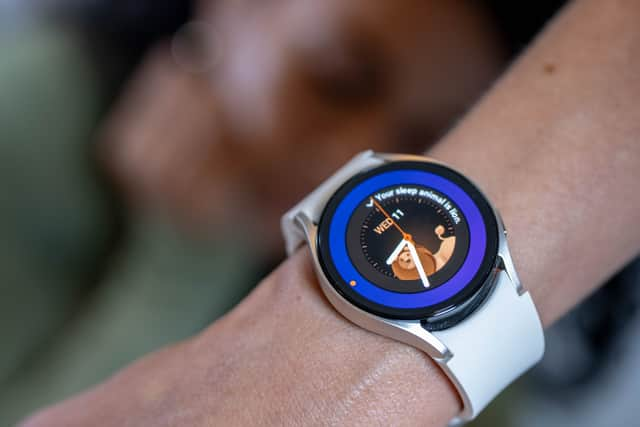More than a fifth of adults have dozed off – while at their desk


A poll of 2,000 Brits found 22 per cent have drifted off while on the clock – due to late nights (45 per cent) or working too hard (32 per cent).
While others admitted to having 40 winks in nightclubs or bars (12 per cent) and one in 10 have nodded off on the loo, citing an over indulgence in food (25 per cent) as another reason for dozing in atypical locations. The research, commissioned by Samsung to support the Sleep Animals functionality on the Galaxy Watch6, also found others have caught some shut eye at parties, theatre shows and on public transport.
Advertisement
Hide AdAdvertisement
Hide AdThe technology brand also ran its own global study analysing 716 million nights of sleep behaviours from Samsung Health users worldwide, and found the UK is the country with the lowest sleep efficiency in Europe. The data then categorises various types of sleepers into eight ‘Sleep Animals’ based on their sleeping patterns, with most of the UK falling into the light-sleeping ‘Nervous Penguin’ persona, defined as those who frequently experience disruptions throughout the night.
The results from Samsung's 2023 Global Health Study show that, on average, no one is getting the National Sleep Foundation's recommended 7 hours of sleep.
Clinical psychologist Dr Julie Smith, said: “If you fall asleep during the day without intending to, that is a clear sign of not getting enough sleep at night to stay healthy. This research suggests we could all do with working on improving our poor habits when it comes to our bedtime routines, but to do this we need to have a good understanding of our sleeping habits. From the sensitive hedgehog to the nervous penguin, the sleep personas on the Galaxy Watch6 offer an enjoyable lens to monitor your sleeping patterns, alongside actionable tips for better rest.”


Healthier sleeping habits
The study also found 17 per cent of adults would willingly try unusual methods to try and improve the quality of their sleep. As many as 43 per cent have avoided caffeine before hitting the hay in a bid to get a sound slumber, with the same percentage tucking into a good book before bed.
Advertisement
Hide AdAdvertisement
Hide AdBut 57 per cent claim their disturbed slumber is due to overthinking, while a good night’s sleep is troubled by being too hot or too cold for 49 per cent - and 32 per cent blame working too hard as the reason for not getting their much-needed rest.
Noisy neighbours (22 per cent), uncomfortable beds (21 per cent) and nightmares (17 per cent) are also to blame. Of those who toss and turn at night, 40 per cent struggle to get themselves off to dreamland in the first place because of money worries.
While, ironically, the worry of getting in their ‘zzz’s is stopping 36 per cent of poor sleepers nodding off. As a result, one in four find they struggle to sleep so often they’ve come to dread bedtime.
But 53 per cent feel they prioritise sleep as much as they should, according to the findings conducted via OnePoll. It also emerged just 12 per cent have used a smartwatch to monitor their sleeping patterns, but 25 per cent would like to learn more about their sleeping habits.
Advertisement
Hide AdAdvertisement
Hide AdAnnika Bizon, Marketing and Omnichannel Director for Samsung UK, added, “Through analysing the sleep patterns of millions worldwide, we’re able to understand how technology can play a role in helping people establish healthier habits. To start improving the quality of your sleep, understanding how you sleep is key.”